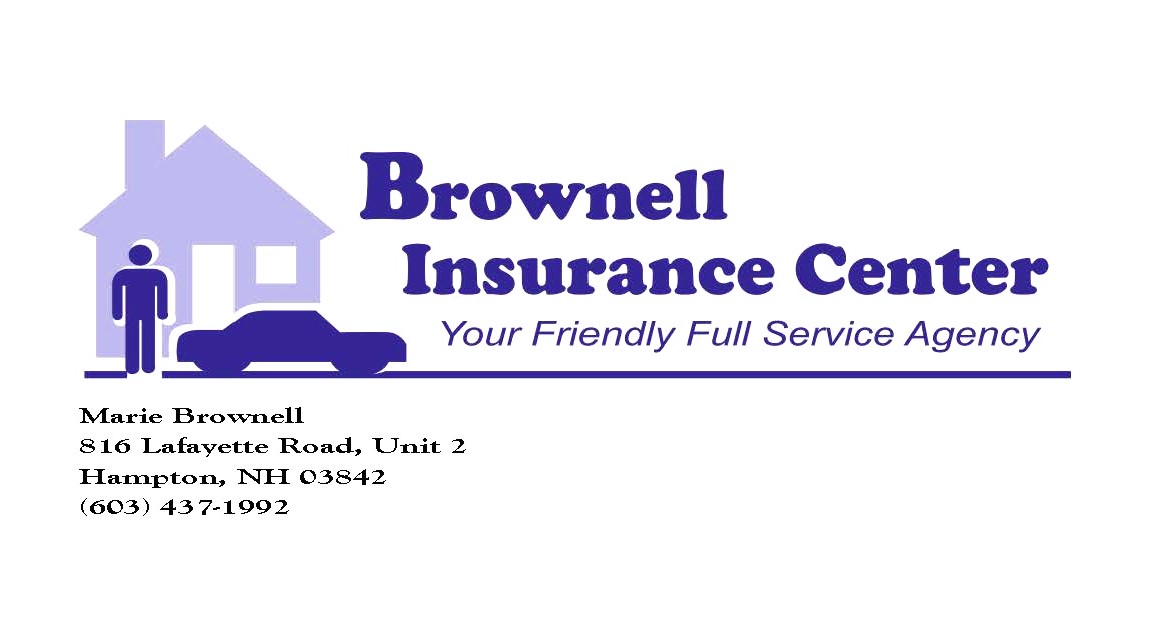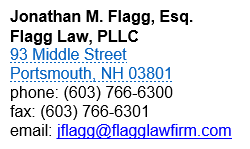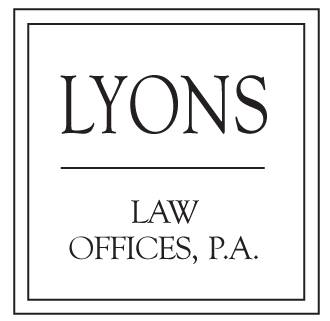Rotary Log for May 21, 2020
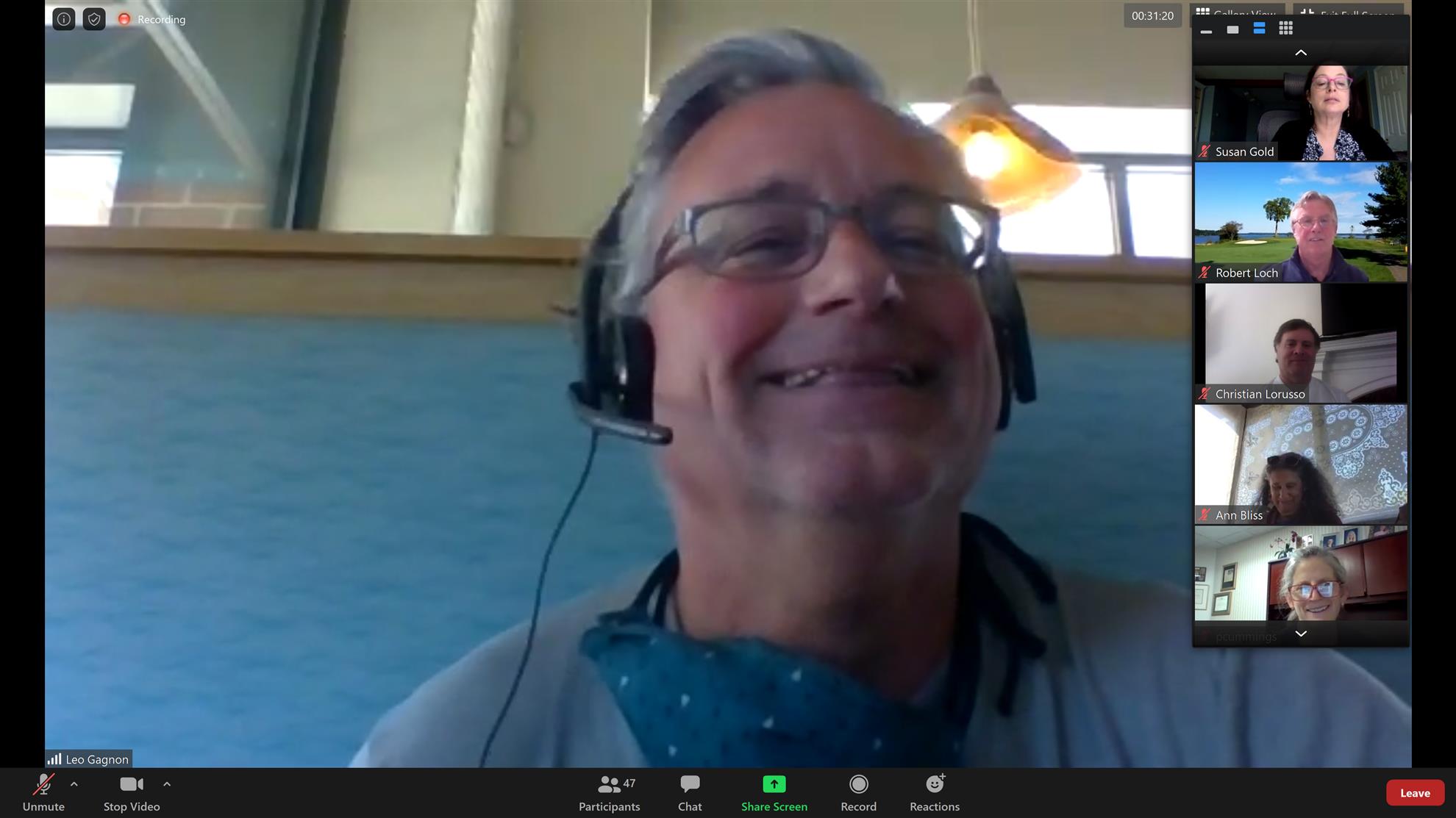
Virtual Rotary Log, Volume 1: Issue 10. Now into our 10th virtual meeting, a new norm has emerged. Attendance is holding steady between 50 and 60 participants per meeting with Leo and Jon leading the way. President Leo presided. With the ring of the bell, our meeting began. July Ringer followed the Pledge of Allegiance with a rousing rendition of America. Senor Rice gave the truncated invocation— “coffee, friends, fellowship and Zoom.”
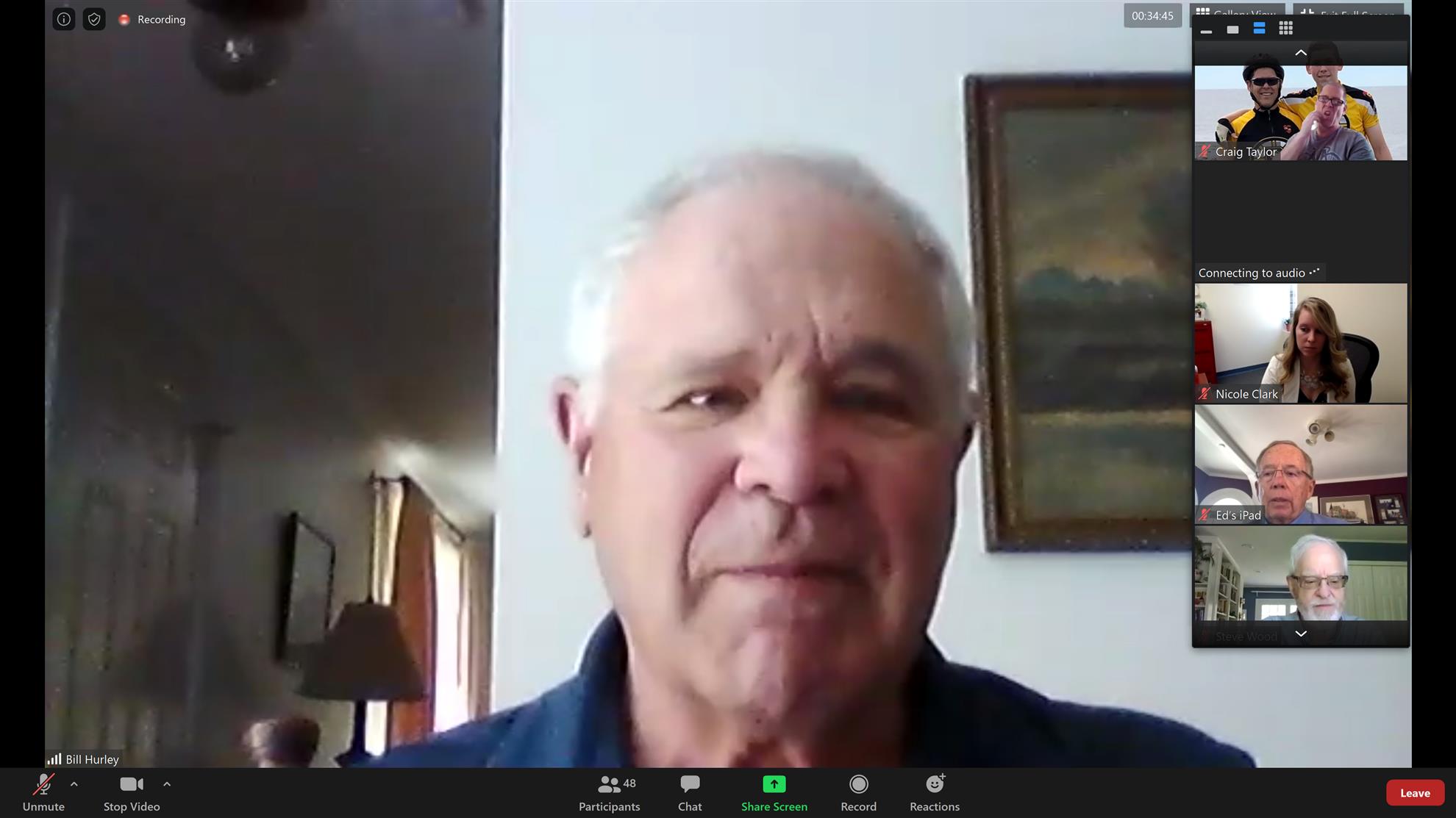
Bill Hurley cut short his golf outing to join the meeting—such loyalty in trying times! Trish Cummings gave us an update on Peg Millar who turned 90 on the May 22. Trish reminded those who wish to call her to give her prompts so she knows where she is. And Leo repeated his Zoom meeting rules spiel. He followed this up by informing us Lindsey is “off” the market—spoken like a true creepy uncle. Congratulations, Lindsey, on your nuptials!
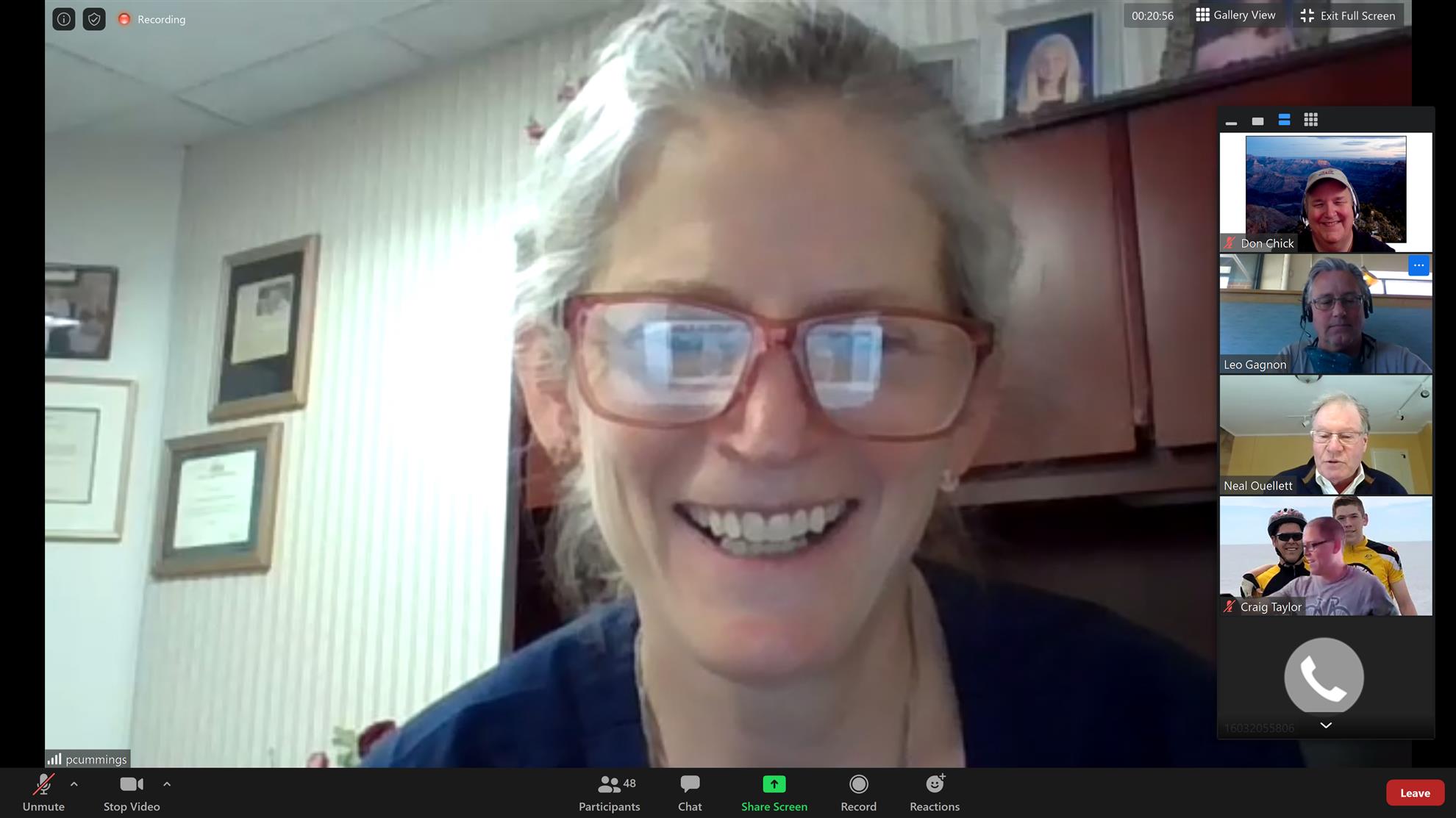
Up next, our general announcements segment. Trish thanked all those who came to the Edgewood Center to give their support to the staff and residents during the Co-vid crisis. The event made Trish feel her dad was smiling from above.
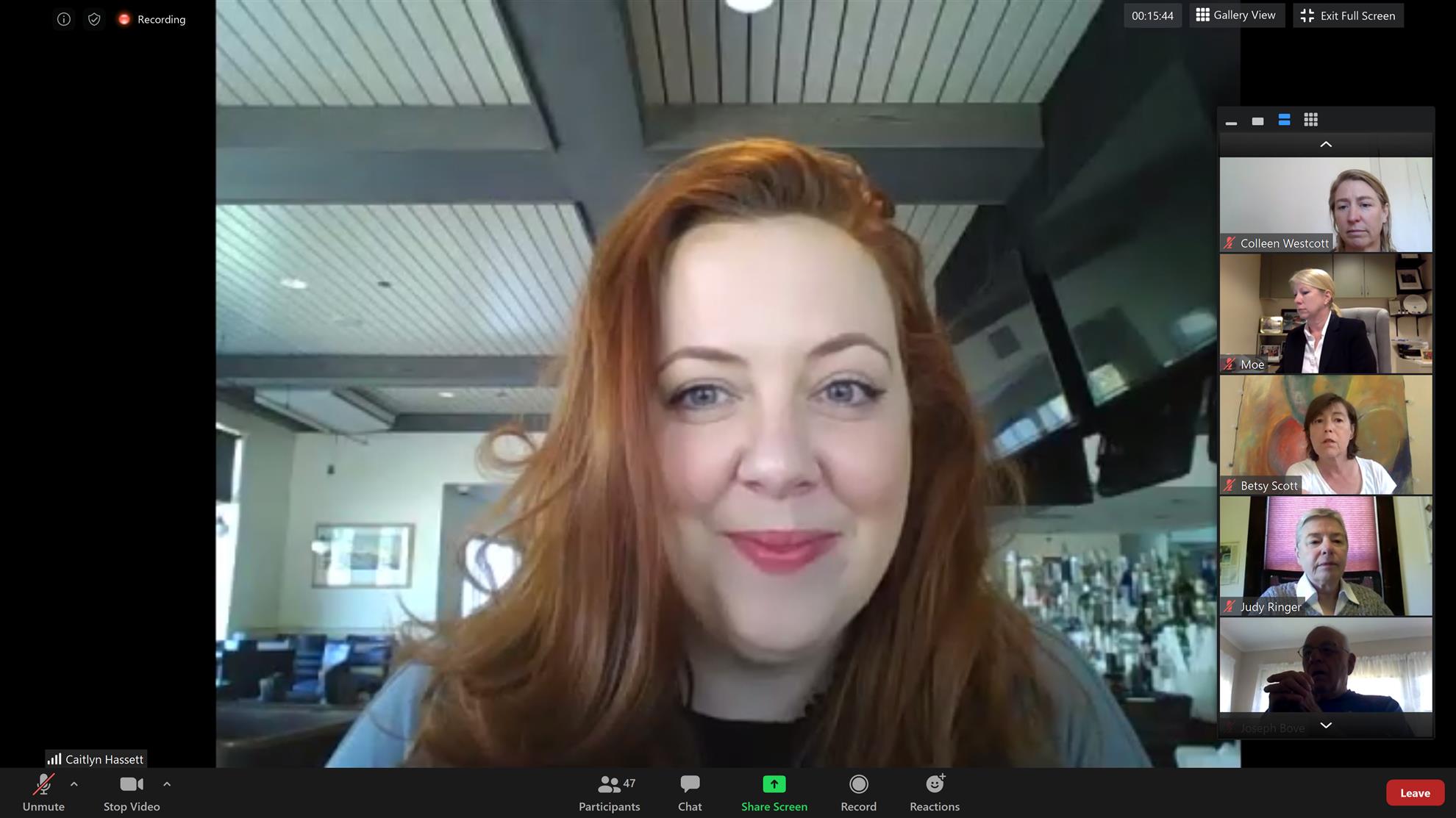
Caitlyn Hassett reminded us about the upcoming vocational awards. So far, she has received nine nominees and has asked for more candidates. She gave some examples of potentially worthy candidates. They include DPW workers, in-house health care workers, assisted-living workers, teachers, delivery people, etc. In other words, people who have gone above and beyond to serve their fellow human beings. Please send in your candidates by this week as winners will be selected next week.
Flagg grumbled about not being on the list. All the while his Zoom profile showed him as being Aileen Duggan. Hopefully, she got meeting credit for that. Jon, you could have sold it if you wore a wig.
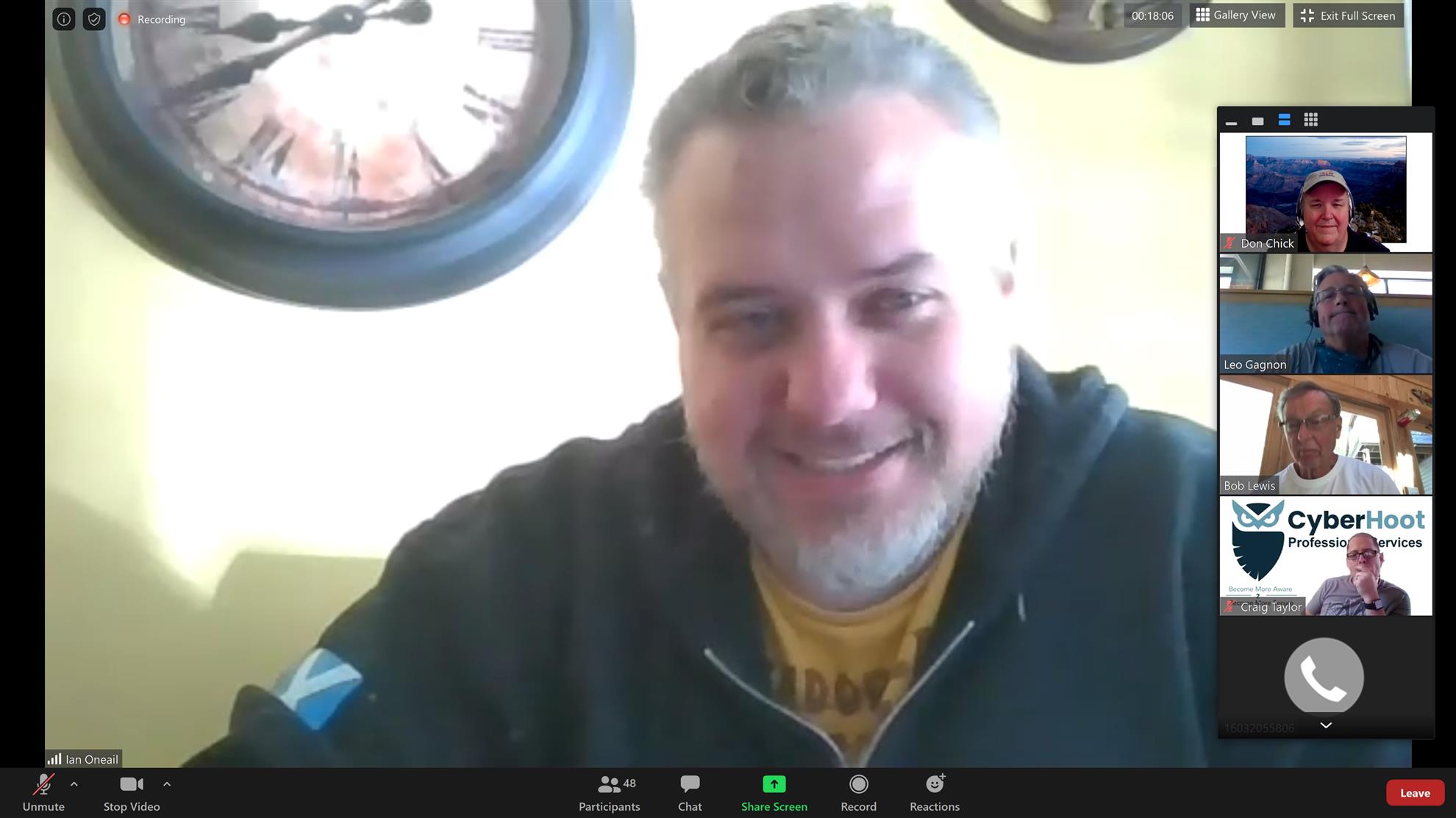
Ian O’neail give us our weekly Rotary Club History Minute or two. Rotary’s first meeting took place in Chicago on February 23, 1905. And yes, it was a Thursday. The four attendees were Paul Harris, Gustavus Loehr, Silvester Schiele, and Hiram Shorey. Schiele was the first president. Harry Ruggles, a printer, introduced singing. There were no dues for the first Rotary club. They collected 50-cent fines to cover costs. And the name “Rotary” came from the practice of rotating meeting locations.
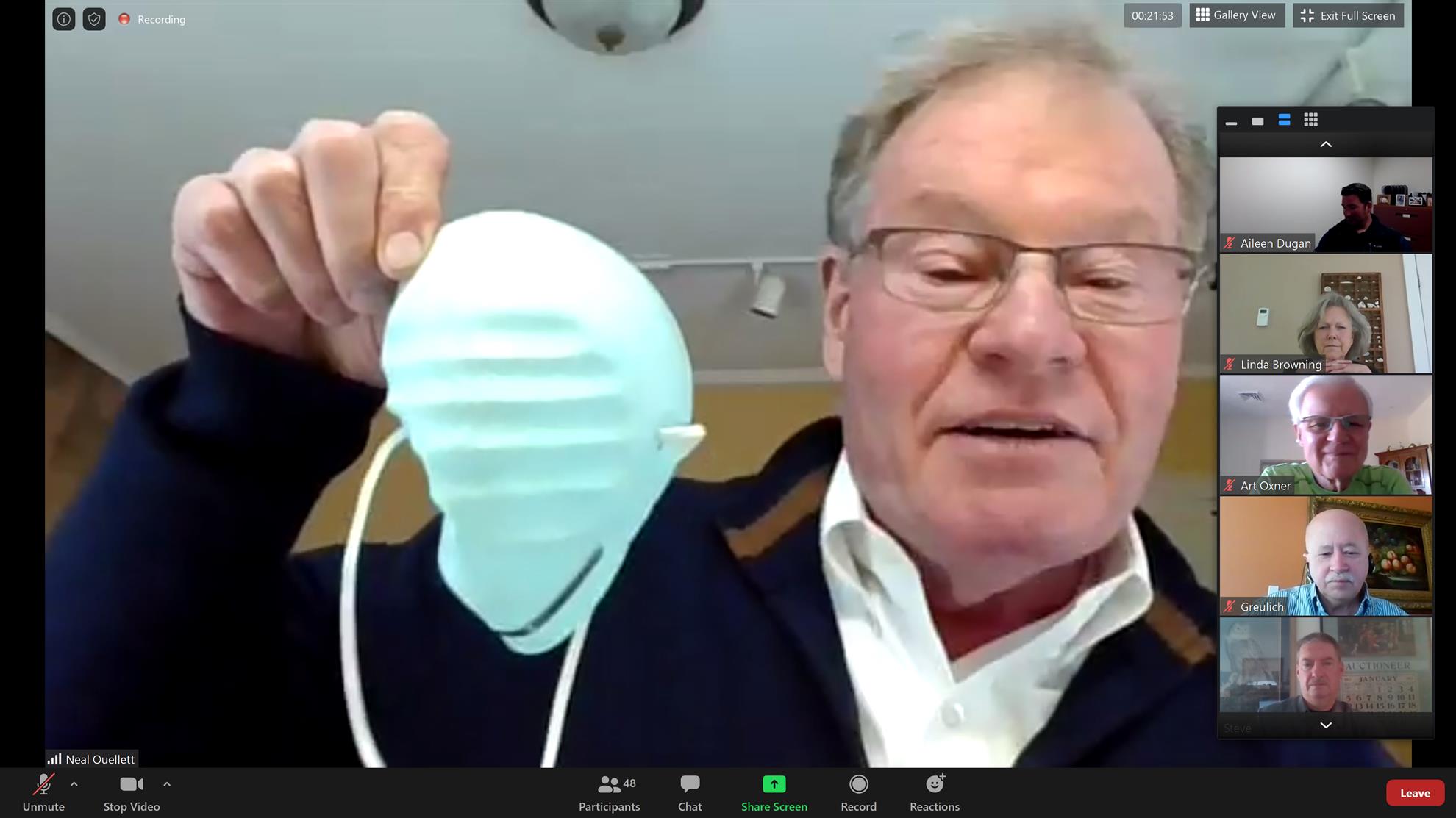
Speaking of fines, Neal Ouellett took the virtual stage and apparently wanted to use the opportunity to practice his alphabet. He established fines with multiple A, B, C. D., etc. categories.
First up, Craig got busted to the tune of $5 for having a business advertisement as his Zoom backdrop. That’s a bigtime faux pas in Neal’s eyes and Craig’s pocket. Next, Joannie was zinged for selling Barbara Miller’s designer mask collection at $25 each. And according to Neal, all proceeds going to them.
The first global fine categories were: A) anyone who visited Ricci Lumber--$2. B) anyone who went to the hospital for a doctor’s appointment with mask--$1. C) Anyone who owns a handmade mask--$1. D) Anyone who has no mask--$5. E) Folks who own a Federal government with underwear mask? --$2. Trish then got fined $1 for interrupting.
The next category, the Fauci 2019 handshake and huggies rule violators. They are A) the Ben Wheeler and Dan Hoefle remote handshaker--$1. B) The Hollywood hug--$1; C) Hydroxychloroquine users--$2. D) no worries--$5. There were more but you get the picture.
Flagg, of course, just could not leave it alone. Wearing a Justin Finn business sweatshirt at Justin’s behest, and telling us about it, he got zinged for $2 for the Aileen screen name.
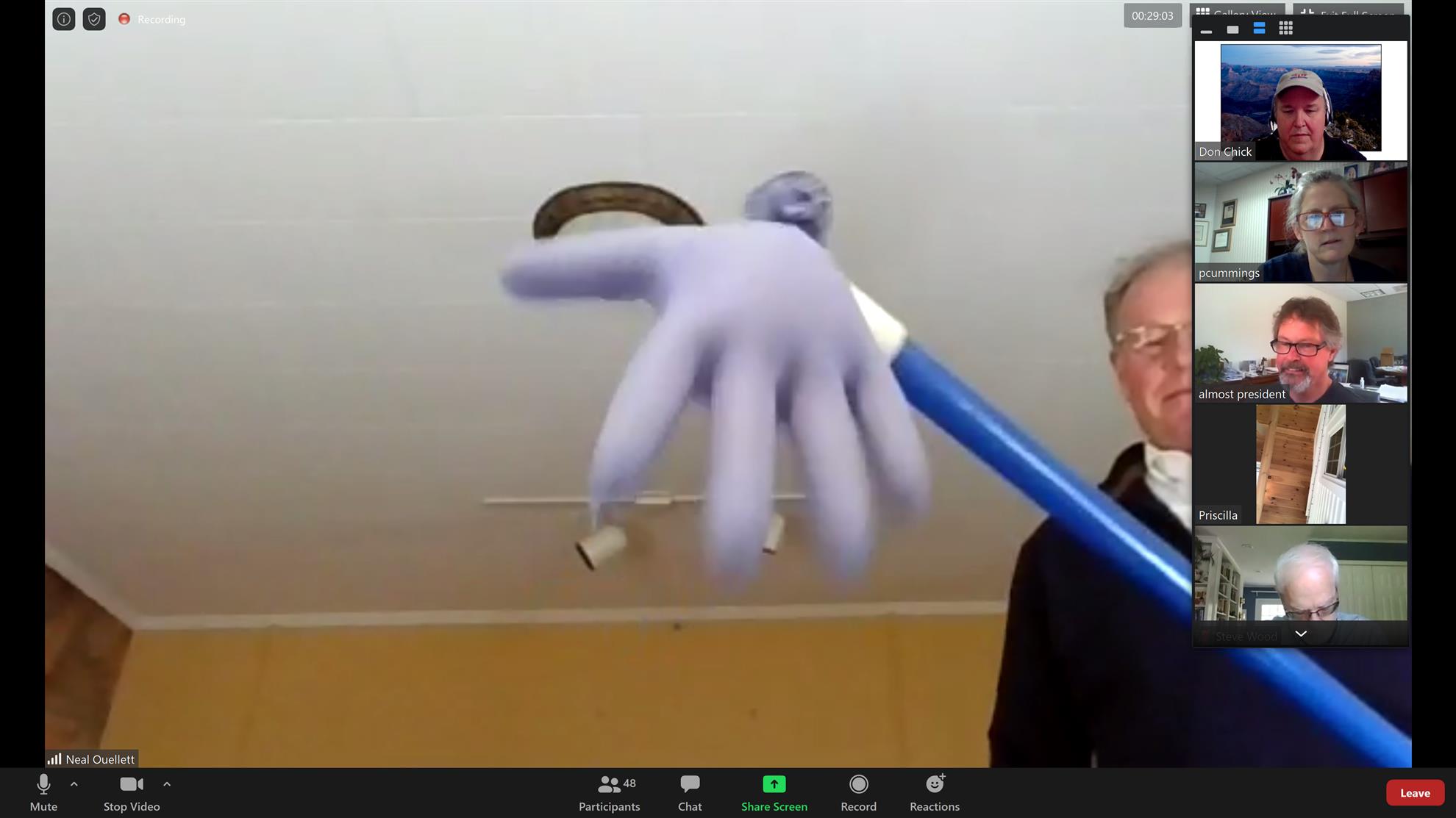
As a final gesture, Neal held up his distant handshaking device—a six-foot pole with a blown-up rubber glove at the end. Yeah, another creepy uncle moment. By the way, Neal raised $240 during the last fine-master session. Well done, Neal!
On to our clever quarantining segment, movie titles were thrown out as recommendations for future viewing. “Blue Boys,” “The Round Table,” “Ozark” the Netflix series and “Patriot Acts” the series were shouted out. Flagg will give us his “At the Movies” review of these works at our next meeting.
Up next, James Petersen introduced our guest speaker, Trish Cummings. She would give us a riveting firsthand account of what life is like in nursing homes during the Co-vid crisis. Trish has a BS in Health and a Masters in Health Administration from UNH. She has served on several boards including the Portsmouth Regional Hospital.
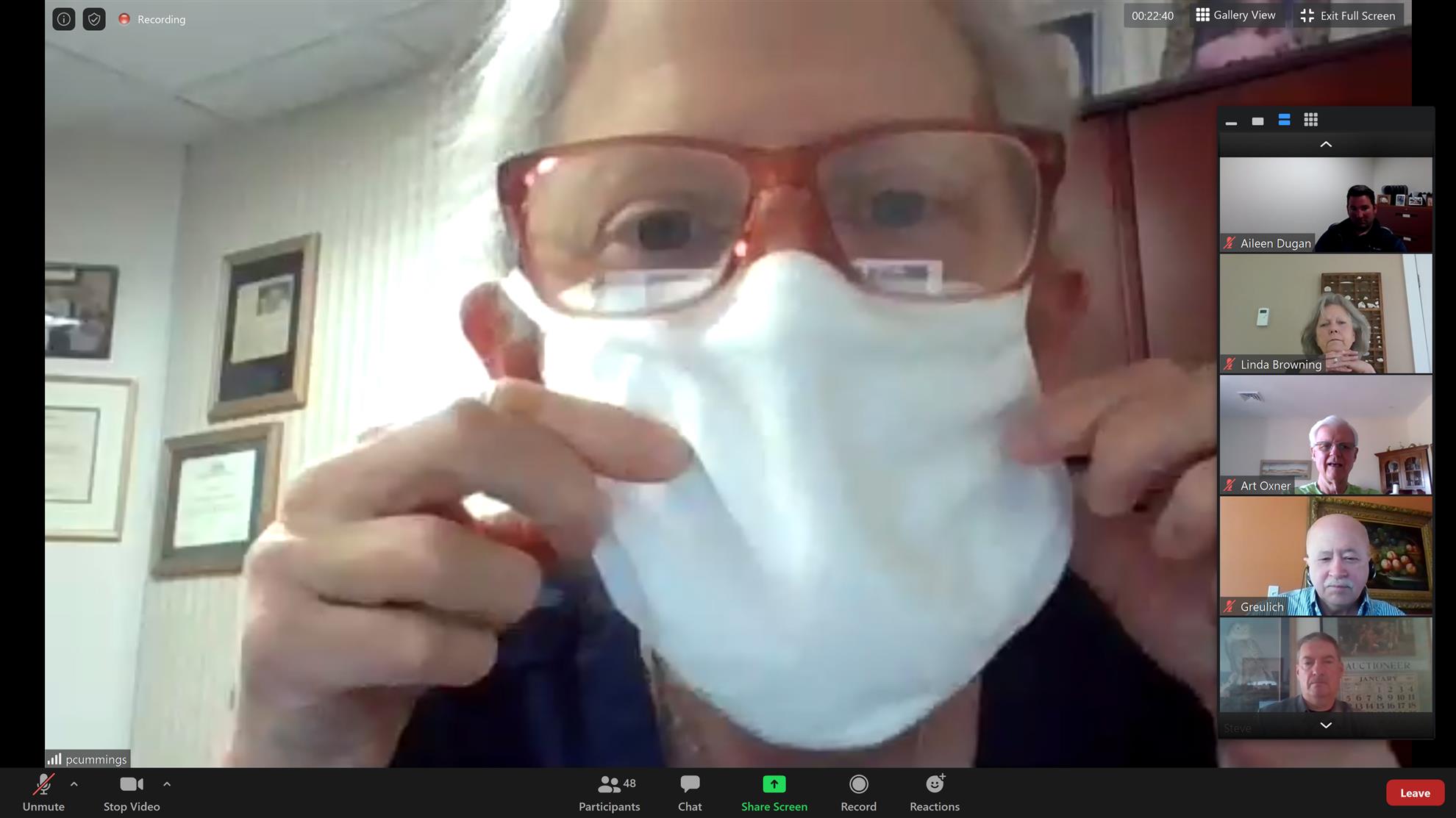
Trish was club president in 2013-2014, visiting some of us who were building the Puddle Dock ice rink that year. Those of us on hand will never forget the horrified look on her face when she found us working without safety glasses. Especially since Dan brandished a nail gun like some 1930’s gangster with his Tommy gun. Like a Zephyr on a mission, she disappeared without so much as a stir. When she returned, she had an ample supply of safety equipment. The undersigned still has his pair to this day! What fun we had!
For the past 25 years, she has been the Administrator at the Edgewood Center, a 156-bed licensed assisted-living facility and nursing home. To hear James explain it, she takes Wednesdays off to golf. And she holds a black belt in martial arts and changes her last name when she goes home to Kittery. Well, only two of those are true. James left it up to us to decide.
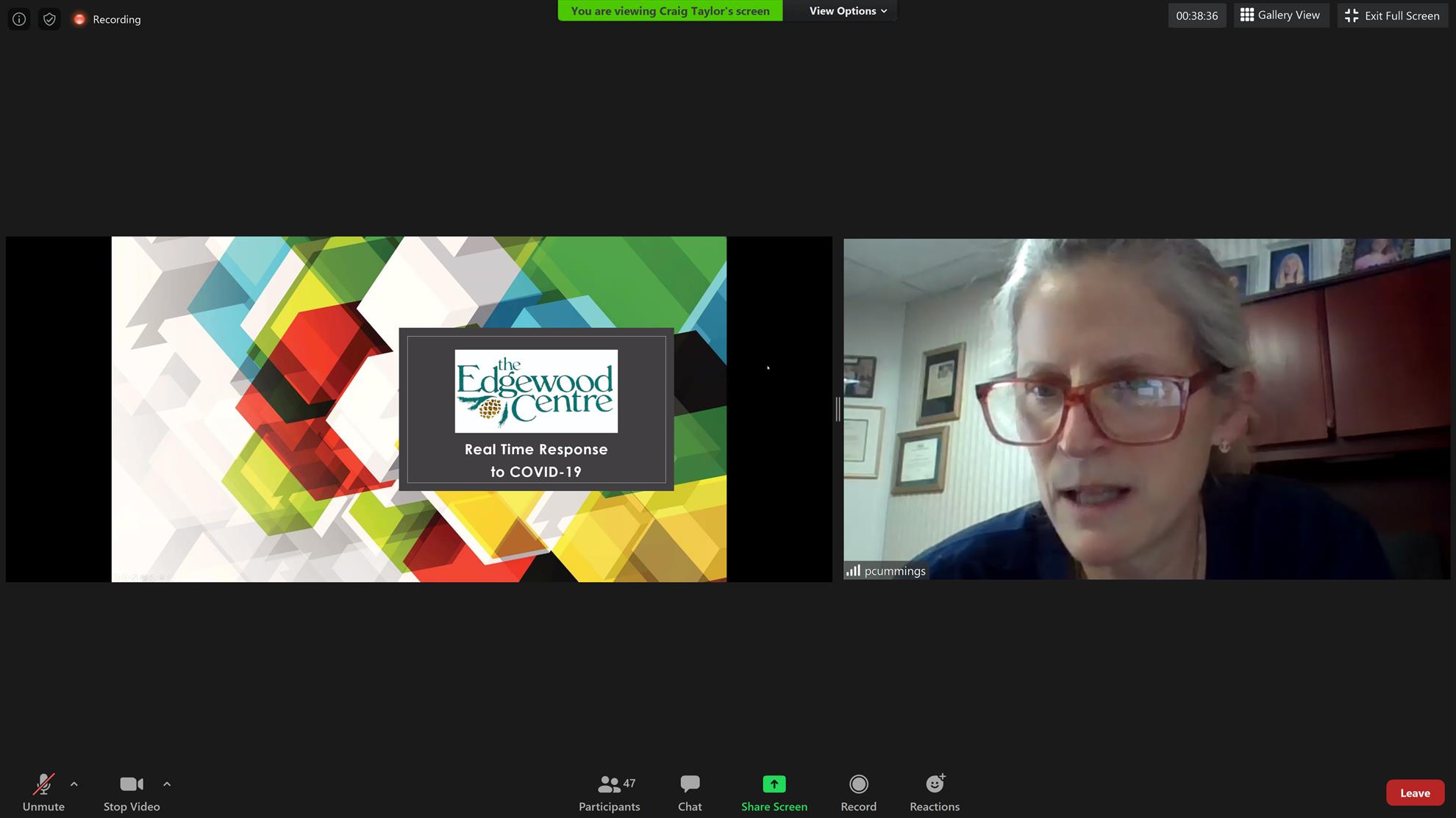
Trish described the heroic efforts taken to stop Co-vid 19 from taking hold in the Edgewood Center.
It began in early February when the Center’s Director of Nursing (DON) informed Trish to keep an eye on this new virus. On February 11, the WHO gave the new virus its name—Co-vid 19--and the race against the clock was on.
By February’s end, Center principals came up with a battle plan to prevent the entry of the virus into the building.
On March 3, a tabletop meeting was held to address issues of staffing, supplies and protocols to implement. By then, the federal government issued a Level 3 travel advisory, impacting travel plans of the Center’s staff members.
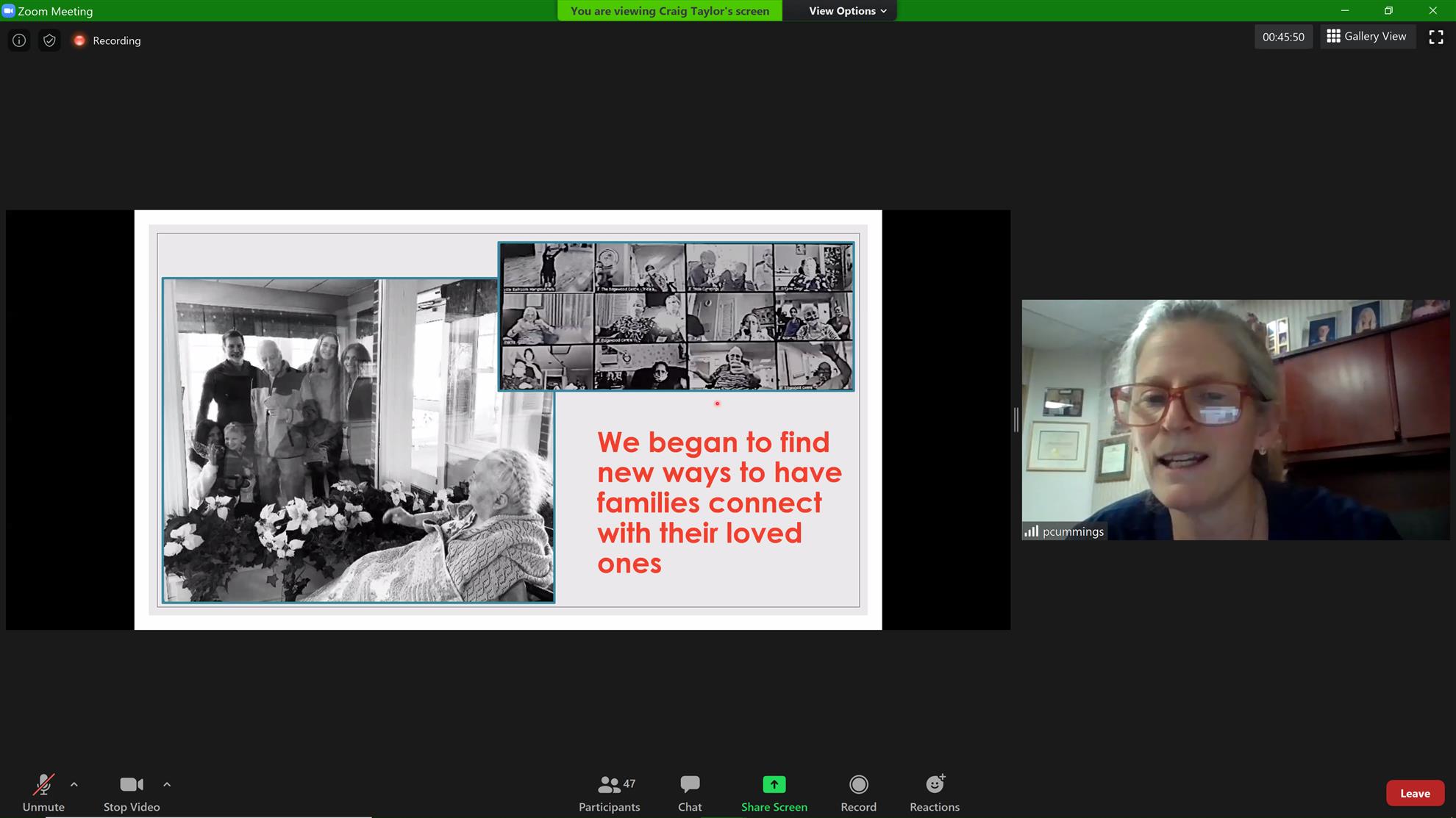
On March 6, visitors were screened at sign-in and the staff implemented infection control practices.
On March 8, the CDC issued an advisory to screen everyone entering a building for symptoms.
During the morning of March 10, the Center limited visitors to family members only. That afternoon, the American Healthcare Association issued additional guidelines restricting all visitation. They were immediately put into effect at the Center. No one in the industry ever expected the virtual lockdown to last this long.
On March 11, the WHO declared the contagion a pandemic.
By March 14, all laundry was done in-house. Families could no longer do laundry for residents outside of the facility. Nothing was accepted from outside the facility such as food prepared by family members. Entry into the building was limited to essential personnel only.
By March 15, only essential items would be accepted into the building. Visitation was permitted only through a plexiglass wall with the resident on one side and the family on the other. A Zoom dance program was initiated to allow the residents to participate remotely from their rooms.
On March 21, conference calls with the state’s DHHS, hospitals, etc., led to the cessation of state inspections. They typically occur unannounced, once a year. Many regulations have been relaxed or suspended to allow health-care facilities to adapt to the crisis. The local, state and federal agencies have been extremely supportive to the Center. Portsmouth Regional Hospital has been very helpful. The readiness response team meets daily.
On March 21, there were 44 known cases in N.H. and 18 confirmed in Rockingham County. The Center’s staff were required to work for only one facility to prevent the potential spread of the virus. HIPPA and employment regulations were suspended at this time as well.
On March 26, all residents had to practice social distancing and all activities were suspended.
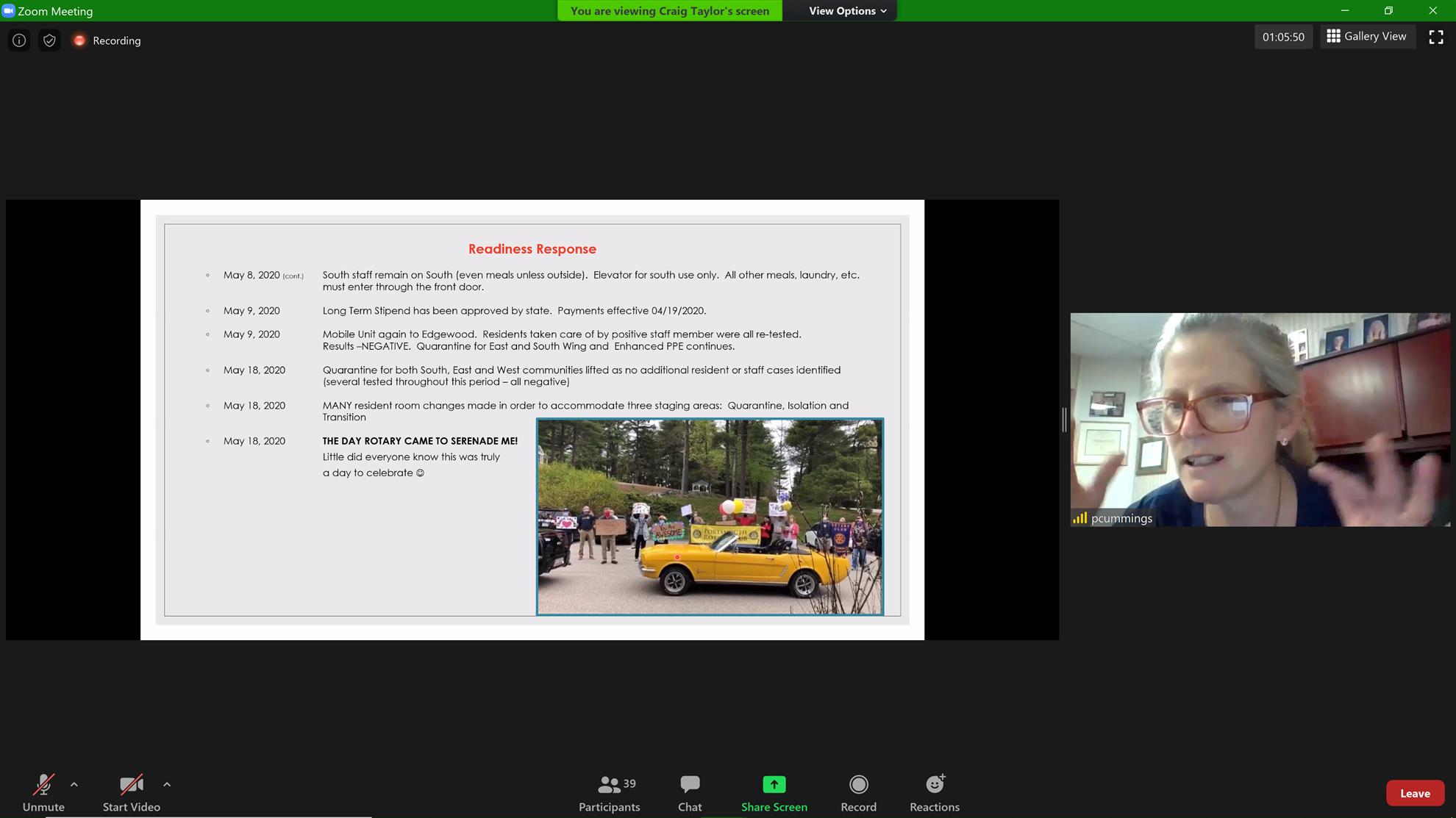
By March 27, all staff and residents were required to wear masks and were checked daily for symptoms. Staff had to be symptom free for 72 hours in order to work. If any symptoms were discovered, the staff member could not work for 10 days and had to be symptom-free for 72 hours. Visitation was now limited to windows only. Getting residents with dementia to comply with mask-wearing was and remains difficult. Contact tracing began.
Fulltime staff began receiving a $300 per week stipend. Part-time workers began receiving $150 per week.



